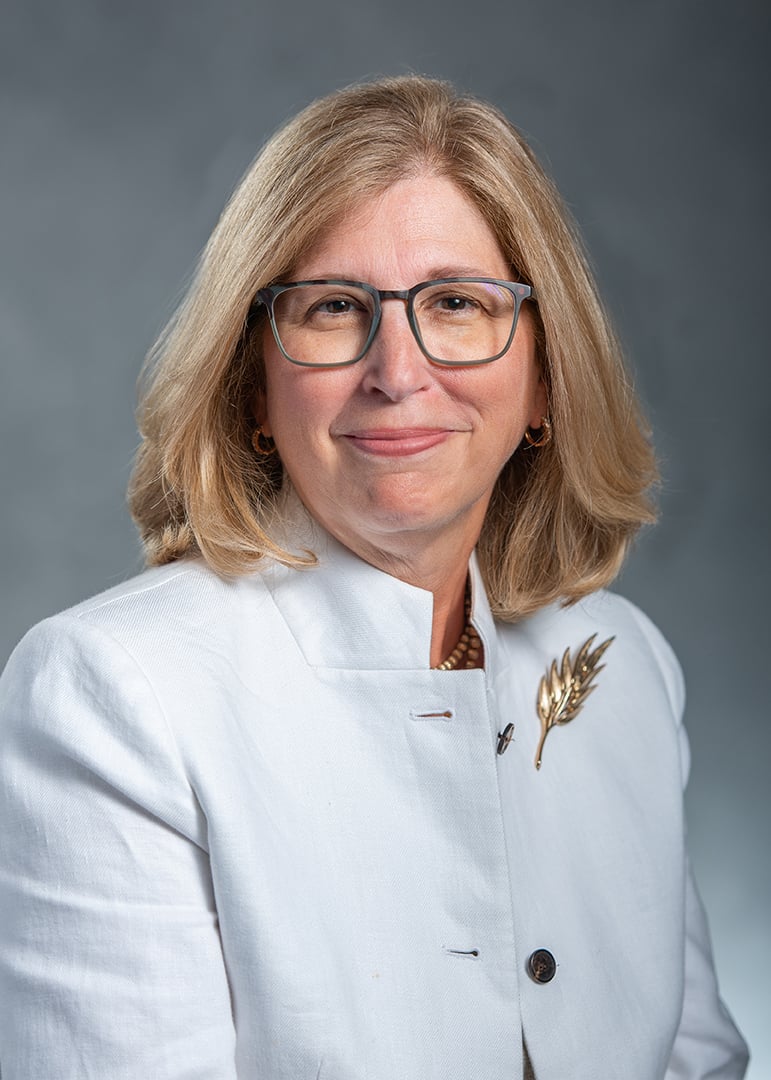Researchers
- Ripla Arora, PhD
- Hannah Bolder, PhD
- Andrew Bossick, PhD
- Gregory Burns
- Ronald L Chandler, PhD
- Maji Hailemariam Debena, PhD, MSW
- Asgi T Fazleabas, PhD
- Sabrina Ford, PhD
- Bin Gu, PhD
- Christine Cole Johnson, PhD, MPH
- Jennifer E Johnson, PhD
- David Kalmbach, PhD
- Richard Leach, MD , FACOG, FACS
- Amy M Loree, PhD, LP, PMH-C
- Barbara Luke, ScD, MPH
- Cristian Meghea, PhD
- Steven Ondersma, PhD
- Cara Poland, MD, MEd, FACP, DFASAM
- Ramandeep Rattan, PhD
- John Risinger, PhD
- Lee Anne Roman, PhD
- Mahmoud Salama, MD, PhD
- Sara Santarossa, PhD
- Jens Schmidt, PhD
- Yong Song, MD, PhD
- Jonathan JK Stoltman, PhD
- Jennifer Straughen, PhD
- Jose M Teixeira, PhD
- Ganesa Wegienka, PhD
- Teresa Woodruff, PhD

Founder of the Oncofertility Consortium; President Emerita and MSU Research Foundation Professor, Michigan State University
766 Service Rd
Room 4022
East Lansing MI 48824
Email: tkw@msu.edu
ABOUT
Teresa K. Woodruff, Ph.D. is a leader in higher education and an internationally recognized biologist specializing in reproductive science. Woodruff, President Emerita of Michigan State University (MSU), most recently served as interim president of Michigan State University, and prior to that, as provost and executive vice president for academic affairs. Dr. Woodruff is an MSU Research Foundation Professor in the Department of Obstetrics, Gynecology, and Reproductive Biology and the Department of Biomedical Engineering at Michigan State University.
As a leading research scientist, teacher and mentor, Woodruff was awarded the National Medal of Science by President Joe Biden (2025) and the Presidential Award for Excellence in Science Mentoring by former President Barack Obama (2011). She is an elected fellow of the American Academy of Arts and Sciences (2020); the National Academy of Medicine (2018); the National Academy of Inventors (2018); the American Institute for Medical and Biomedical Engineering (2017); the Guggenheim Memorial Foundation (2017); and the American Association for the Advancement of Science (2006). In 2022, Woodruff was named a Distinguished Woman in Higher Education Leadership by the Michigan Chapter of the American Council of Education and most recently, was named 2023 Newsmaker of the Year by Crain’s Detroit Business. Woodruff holds honorary degrees from Bates College and the University of Birmingham School of Medicine and has delivered commencement addresses at numerous institutions.
RESEARCH
Dr. Woodruff is responsible for many discoveries, three of which have changed our understanding of fundamental reproductive processes and others that led to a new field of medicine. Woodruff and her collaborators discovered the remarkable ‘zinc spark’ which allows an assessment of egg quality in a non-invasive way; she was the first to mature ovarian follicles leading to live births of mice outside the body and fertilizable human eggs; and, she used this technology to develop pathways for cancer patients receiving life-preserving but fertility-threatening treatments to have a family, a field of medicine known as ‘oncofertility’. Additionally, she created the first three-dimensional (3D) printed functional soft tissue, an achievement that she called an ovarian ‘bioprosthetic’ which functioned to produce the first live birth from a printed organ. Her landmark work on hormone signaling in the female reproductive system includes cloning the inhibin and activin subunits, characterizing their transcriptional regulation across ovarian cycles from rodents to humans, and defining the molecular basis of this essential negative feedback pathway. Further, Woodruff used this fundamental knowledge to reconstruct an entire ovarian cycle outside the body in a system now known as EVATAR/Lattice. Working at the national level, Woodruff also championed a new National Institutes of Health policy mandating the inclusion of both male and female biological variables in fundamental research.